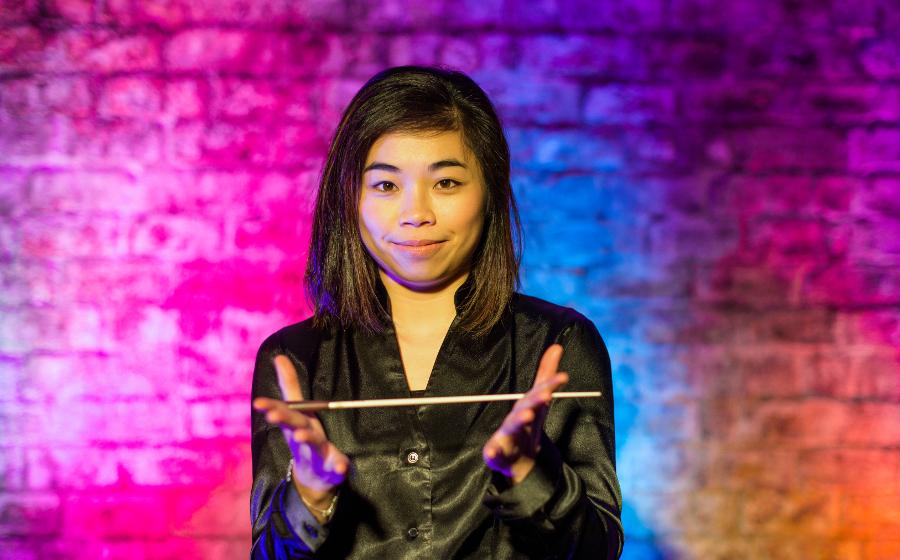The RSNO, fresh from their American tour, are in the charge of principal guest conductor Elim Chan tonight. She is a dynamic conductor who seems to be developing a good rapport with the orchestra. Tonight, she gives us a brief introduction to the programme, including the first work, Endless Forms, by Hong Kong composer Fung Lam.
Lam first came to prominence ten years ago when the BBC Philharmonic gave the world premiere of his Illuminations. Since then, he has made a reputation around the world and indeed his work tonight was highly praised when it was premiered at the Proms in 2012. Chan promises us that we will enjoy it and that it is melodic—and she is right—although its middle sections tend to drift a little. However, the very large orchestra of sixty-plus musicians, including a wide range of percussion and brass, as well as pianist Lynda Cochrane, bring it back to life at the end.
This is followed by Sibelius’s Violin Concerto, played by a fine young American violinist, Benjamin Beilman. Sibelius had dreamt of becoming a violin soloist but started lessons too late (at the age of fourteen) to make it, despite studying for ten years. In a way, his violin concerto is a testimony to his youthful musical desires. Originally completed in 1904, the concerto had a disastrous premiere with a soloist who wasn’t up to it. Sibelius rewrote it, and the new version was triumphantly premiered in 1905 and since then has become a standard work in the repertoire.
Beilan came to prominence in 2010 when he won a series of awards and since then has made a great name for himself internationally; tonight is his debut with the RSNO. It soon becomes clear that he is a very skilled and lyrical violinist, standing in front of the orchestra with no music, and brilliantly playing the soaring opening theme, through the nostalgic slow movement, on to the final infectious theme of the last movement. The reduced string-focussed orchestra, under the energetic baton of Chan, gives great backing to the soloist and we all learn that Sibelius might not have been a great violinist, but he was a great composer of a violin concerto.
The concert concludes, after the interval, with Elgar’s wonderful Enigma Variations. This was the work that made Elgar famous (quite late on) at the age of forty-one in 1899. The work was well received in Britain, but its international reputation was assured when, at its European premiere, the great composer Richard Strauss said, “here for the first time is an English composer who has something to say”.
The work comprises a main theme followed by thirteen variations, each representing one of Elgar’s friends, the last one representing Elgar himself. Of course, over the years there has been much speculation as to the identity of the the characters, and some were identified early on, including his wife Caroline (the first variation), and the most famous one, Nimrod, was dedicated to his close musical friend, August Jaeger.
However, whoever they are dedicated to, the Enigma Variations are a delightful, amusing and moving orchestral work. Tonight, they are very well played by the RSNO under the direction of Chan (and with the organist Kevin Bowyer), and they get a warm response from the big Usher Hall audience.
